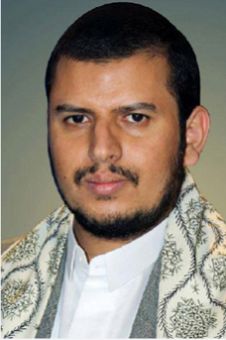Sheikh Abdul-Malik al-Houthi is the leader of the Houthi political, religious, and militant movement, known officially as Ansar Allah (“Supporters of God”). Under his leadership, the Houthis have become the most powerful political-military force in northern Yemen and a key player in regional geopolitics.
Birth: 22 May 1979 (Age: 46)
Source of Influence: Political
Influence: Political
School of Thought: Shi‘a, Traditional Shi‘a
Status: Featured in current year
Sheikh Abdul-Malik al-Houthi is the leader of the Houthi political, religious, and militant movement, known officially as Ansar Allah (“Supporters of God”). Under his leadership, the Houthis have become the most powerful political-military force in northern Yemen and a key player in regional geopolitics.
Zaydis: The Zaydis, also known as “Fiver Shi’ism”, are a branch of Shia Islam that originated in the 8th century following a succession dispute. Their doctrine emphasises the need for an active and just imam who is a descendant of the Prophet Muhammad ﷺthrough his grandsons Hasan or Husayn, and who is willing to confront corrupt rulers. Centered in Saada, Zaydis form 35% of Yemen’s population (12 million), advocating social justice and resisting foreign influence. While a sect of Shia Islam, Zaydism is closer in many respects to Sunni Islam than to other Shia branches.
Houthi: The Houthi movement was founded in the early 1990s by Hussein Badr al-Din al-Houthi, Abdul-Malik’s elder brother, who was a Zaydi Shia scholar and outspoken critic of Wahhabism and the Yemeni government. The Zaydis, a Shia sect with deep roots in Yemen, ruled much of the country for over a thousand years until the republican revolution of 1962. Initially a revivalist religious and cultural movement, the Houthis gradually transformed into a political and military force after a series of armed confrontations with the central government in the 2000s.
Taking Yemen: Abdul-Malik al-Houthi assumed leadership after his brother’s death in 2004 during clashes with government forces. He consolidated power during the 2011 Arab Spring uprising, seizing control of Saada and Jawf provinces. In September 2014, his forces stormed the capital Sana’a, capturing key ministries and military installations. He has driven Al-Qaeda out of the regions which the Houthis have taken.
Bombing Yemen: In March 2015, a Saudi-led coalition, backed by the United States and other regional allies, launched a military intervention against the Houthis seeking to restore President Abdrabbuh Mansur Hadi to power. The war (2015-2022) resulted in more than 150,000 direct fatalities and contributed to over 200,000 additional deaths from famine, disease, and infrastructure collapse. The conflict left nearly 70 percent of Yemen’s population—over 27 million people—dependent on humanitarian aid. Cholera outbreaks infected over a million people, while shortages of food, medicine, and fuel created catastrophic conditions described by the UN as the world’s worst humanitarian disaster. Despite the devastation, the Houthis managed to maintain control over much of northern Yemen, including Sana’a, while expanding their influence through alliances, military resilience, and an ability to mobilise mass public support.
The Gaza Genocide: Yemen has witnessed regular pro-Palestinian rallies of over a million participants in Sana’a and other northern cities. In compliance with international law to stop a genocide, they launched a maritime campaign against commercial vessels in the Red Sea and Gulf of Aden, targeting ships with ties to Israel, the US, or their allies. To date, they have attacked more than 100 vessels, seizing one and sinking two. Houthi drone and missile strikes on Israel, including hypersonic missiles by September 2025, have disrupted Eilat’s port, halting 80% of its trade. These actions have prompted retaliatory strikes by the US, UK, and Israeli forces against Yemeni ports and infrastructure, escalating regional tensions.
“All the sacrifices we offer for the sake of Allah are a source of pride, honour, and dignity”
100 ships attacked in response to the war in Gaza
19.5 million people were estimated to need humanitarian assistance and protection
News about Abdul-Malik Al-Houthi
- No approved news items yet.



